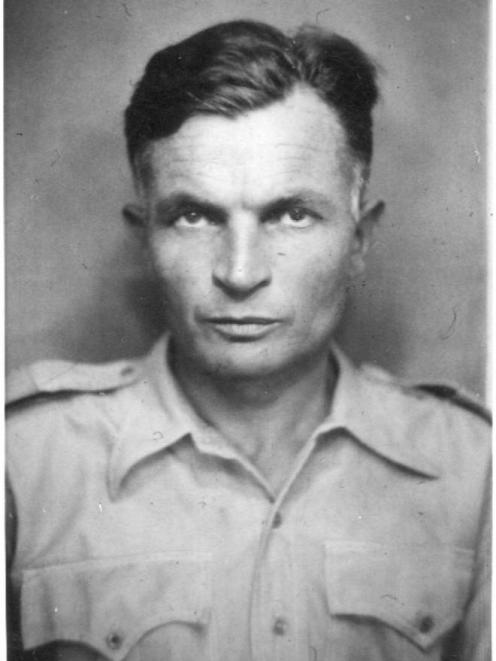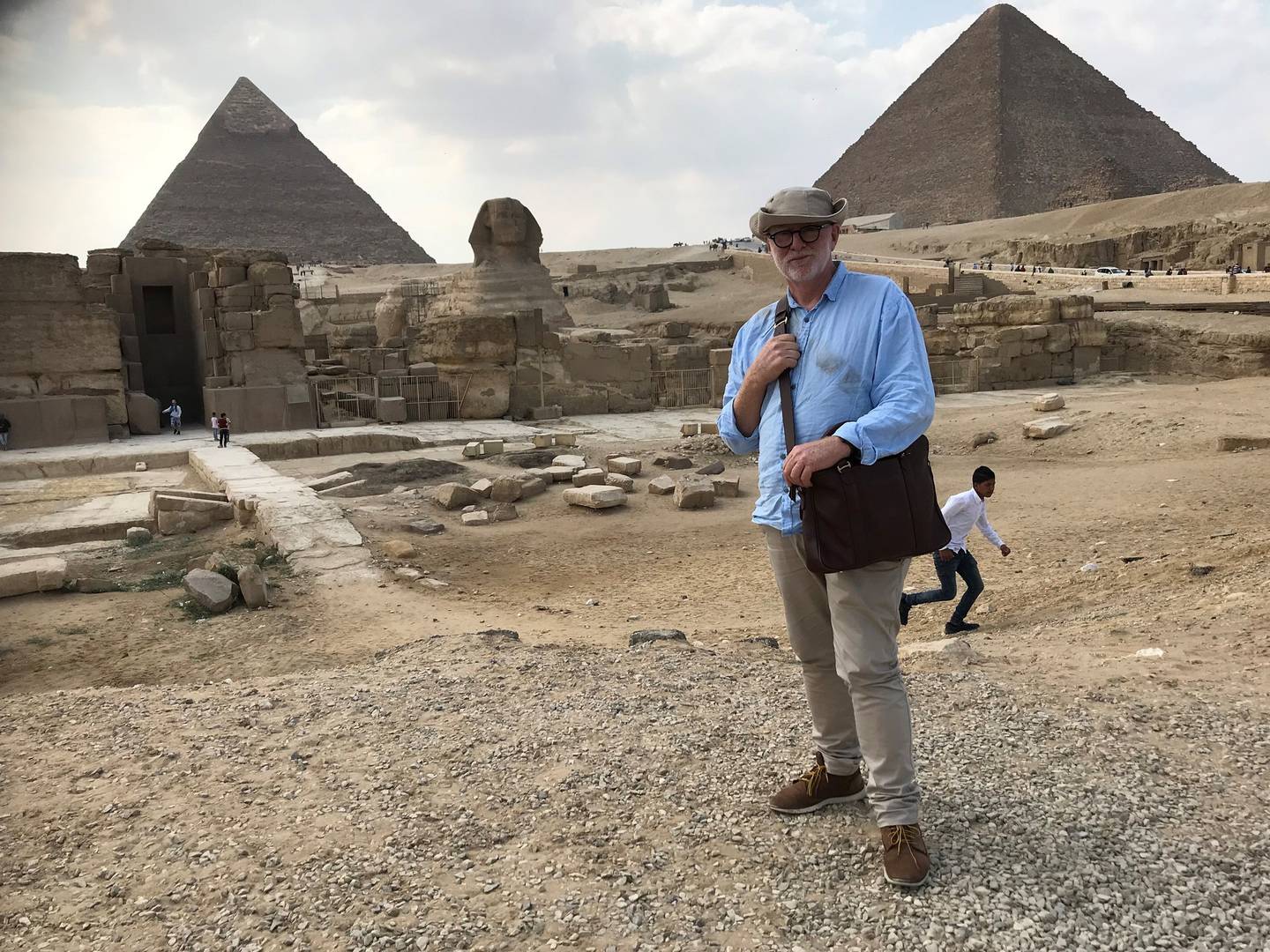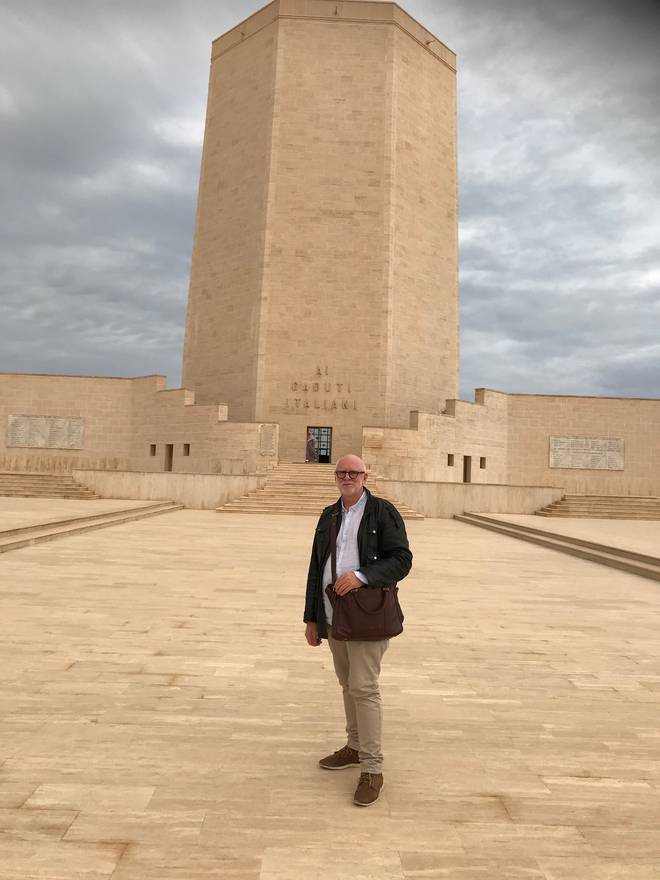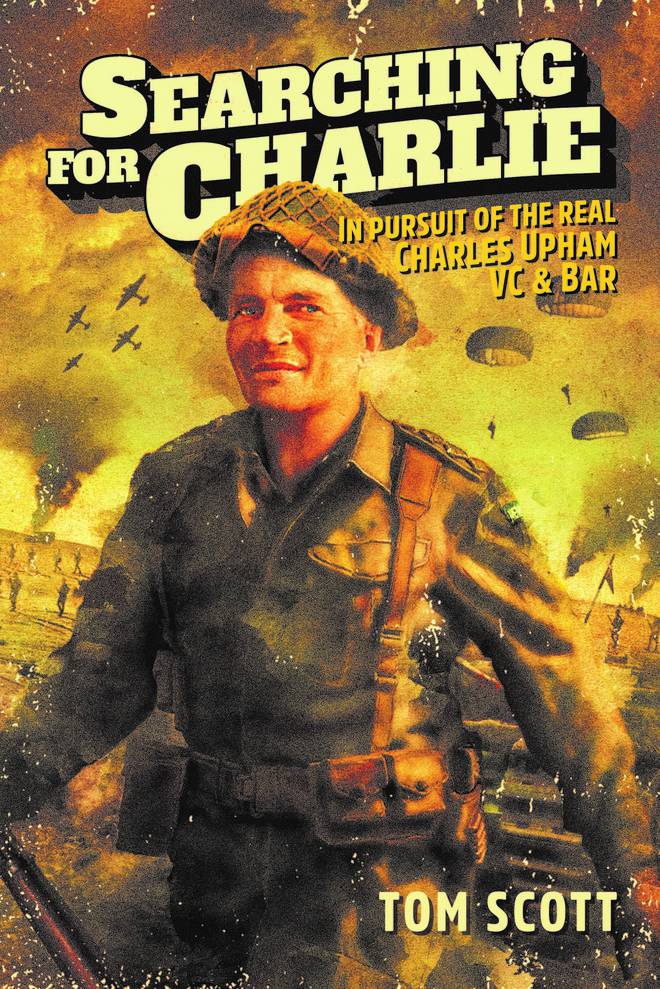
Captain Charles Hazlitt Upham is the only combat soldier to twice win the Victoria Cross - the highest award for gallantry - and one of only three double VC winners ever.
He was awarded his first VC for "a series of remarkable exploits" over nine days during the bloody Battle of Crete in 1941, where he single-handedly snuffed out numerous machine-gun posts, carried wounded men under fire, and was badly wounded in his shoulder on the fourth day.
Upham then won his bar, or second VC, when he fearlessly led his men in North Africa. His citation recorded "five acts of conspicuous gallantry" over three weeks before he was severely wounded again and captured by the Germans.
As a prisoner of war (POW), he made so many escape attempts that he was finally sent to the infamous Colditz Castle.
But in Searching for Charlie, a major new biography published on Thursday, award-winning cartoonist and columnist Tom Scott suggests the relentless acts of bravery by a wiry, modest Canterbury farm valuer meant he probably deserved six more.

"Searching for the source of Charlie's courage was like chasing the end of a rainbow. The deeper I looked and explored the more mysterious it became, until it defied rational explanation."
Scott has been fascinated by Upham since he was a schoolboy and reading the best-selling classic Mark of the Lion by Hamilton lawyer Kenneth Sandford, published in 1962.
During his research, he went on a pilgrimage to Upham's old battlegrounds in Crete and Egypt, as well as the POW camps at Colditz and Weinsberg in Germany, and Modena in Italy.
Scott visited the British Museum and learned about other VC winners, all the time thinking, rather ashamedly, "Charlie did this before morning tea".
He also retraced Upham's childhood and discovered his uncle and namesake, Dr Charles Upham, who took his nephew on house calls to the Quail Island leper colony.

Shy and reluctant to take any credit, Upham deflected all praise onto his soldiers and was "distraught" to discover he'd won the VC.
"Charlie was locked into a defiant, bewildered, almost pathological modesty," Scott says.
"He didn't downplay his achievements so much as wish vehemently that they would go away."
Scott examines the science behind bravery and even takes a test on Upham's behalf to rubbish claims he was a psychopath.
"If you distilled everything that was good in a New Zealand male at that time, Charlie would've been the Champagne or brandy you would've produced," Scott says.
"He just seemed to sum up that Kiwi doggedness, resolve and self-effacement."

From Chapter 11 - 'Perfect pandemonium'
Galatas is nothing like the picture I had of it in my mind's eye. I ignored clues to the contrary in every book I read on Crete and imprinted in my memory it was a cluster of houses on a flat rural road.
I could never figure out why Charlie's platoon participated in a bayonet charge to recapture it. This changed when I saw a road sign for Galatas and swung my rental off the national highway and headed inland to a hilltop village. A one-way road coiled like a snake charmer's python to the summit where a Greek Orthodox church overlooked a small square. To the east farmhouses and hilltop mansions stretched all the way to Chania. To the south lay the White Mountains, Cemetery Hill, Prison Valley and Lake Agia reflecting late-afternoon sunlight like a chrome bumper. To the west, rolling slopes laced with vineyards and dotted with olive trees spread all the way to Maleme airfield, an air force base and the German War Cemetery.
After four days of battle, the Germans owned this coast, lock, stock and smoking barrel. To continue their advance into Chania, the Germans had to first get past Galatas. That's why it mattered.
On the fifth day Charlie's company were sent forward to protect the northern approaches of the village against repeated enemy assaults that got heavier as the day wore on. Some New Zealand units were forced back. Charlie was determined to hold their ridge. Leaving his men lower down, he crawled to the highest point to study the approaching enemy. Satisfied the terrain worked to their advantage, he signalled his men to join him. The crack 5th German Mountain Division advanced confidently. Too confidently.
Kippenberger: "At Galatas on May 25 his platoon was heavily engaged when troops in front gave way and came under severe mortar and MG fire. While his platoon stopped under cover of a ridge, 2/Lt Upham went forward, observed the enemy and brought the platoon forward when the Germans advanced. They killed over 40 with fire and grenades and forced the remainder to fall back."
Another wave of Germans flowed around their dead, firing in the general direction of Charlie's well-hidden boys. Sandford describes Charlie as being in a state of "exhilarated defiance" at this point. He paraded up and down just long enough to pinpoint German machine-gun fire, then directed his riflemen to destroy it.
As Private Ken McKegney told it: "Charlie was telling us to keep down, all the time standing there in the open himself, his arm in a sling. Most of the boys thought it was too hot for us to stay there but they couldn't do much about it with Charlie wandering around as if it didn't matter, lead flying everywhere. Charlie knew that if we didn't stick it out for a few hours, the whole division might have gone west."
Sheer weight of numbers prevailed in the end. Germans getting in behind Allied lines wreaked havoc. Under orders to retire with his platoon, Charlie saw a pincer movement unfolding behind him.
Kippenberger: "He went back to warn other troops that they were being cut off. When he came out himself he was fired on by two Germans."
Charlie emerged out of an olive grove on the run. Somewhere behind him were two Germans armed with machine guns. Ahead of him was a hundred metres of exposed ground sprinkled with a few trees. He was halfway across when the Germans appeared out of the grove, guns chattering. One of Charlie's men saw him jerk and twist as he fell from view into long grass. He was convinced Charlie had been killed. So were the Germans, but taking no chances, they crept forward cautiously.
Kippenberger: "He fell and shammed dead, then crawled into a position and having the use of only one arm he rested his rifle in the fork of a tree as the Germans came forward."
Charlie had just tripped over an exposed root. He squirmed through the grass to a small tree that stood between him and his stalkers. The first branch was low. Charlie used his right hand to lift the heavy rifle into the fork. The Jerries were close, looking for a body. Charlie let them creep closer. He took aim, waited until they were just 2 metres away, then squeezed the trigger — CRACK! The first German toppled to the ground. The second German paused in disbelief over his fallen comrade. It was time enough for Charlie to shift his good hand to the bolt, draw it back and bring another round into the chamber. Pushing it home, he squeezed the trigger again — CRACK! Blood spouting from the middle of his forehead, the second German fell face forward against the muzzle of Charlie's rifle.
Further up the slopes, Colonel Kippenberger was charged with holding Galatas against the German breakthrough with a makeshift force of drivers without trucks, gunners without artillery, the Kiwi Concert Party, plus Cretan irregulars and mainland Greek soldiers armed with ancient rifles. Some of his men broke and ran. Horrified that it might become contagious, the slightly built, undemonstrative small-town lawyer stood in the middle of the maelstrom shouting, "Stand for New Zealand! Stand, every man who is a soldier!" He sheepishly admitted later that he couldn't think of anything else to say. It was hardly "We few, we happy few, we band of brothers!" like Henry V before the battle of Agincourt, but it was enough. It stopped a trickling retreat from becoming a complete gushing rout and made him a legend in the New Zealand Division.
Kippenberger waited until dusk before launching a counter-attack. With reinforcements from the 28th Battalion, Charlie's platoon, and two British tanks, they charged back into the village with all guns blazing and Maori war chants electrifying the air. Unbidden, locals, including mothers and grandmothers, armed with knives, reap hooks, pitchforks, hoes and axes joined in, screaming like banshees.
Kippenberger: "There was a tremendous amount of bayonet work in Galatas. For 15 minutes there was perfect pandemonium in the village, an indescribable uproar, screams, grenade bursts and the deafening rattle of rifles, Brens and Tommy guns. The narrow cobbled street was carpeted with the dead, nearly all Germans. Every door and window had been smashed in, and dead Germans sprawled in every room by the street, with wounded on both sides walking, crawling or propped against the walls everywhere.'
Chased down streets, over walls and across backyards, Germans fled in terror. But everyone knew that once they had gotten over their shock and called for reinforcements they would be back.
A large painting depicting a scene of the fighting hangs on the wall of the antechamber attached to the church at Galatas. Holding a rock aloft, a bearded Cretan wearing a beret, sleeveless jerkin, breeches and knee-high leather boots stands over a cowering German. Trapped in his harness, as helpless as a bug on its back, the paratrooper is about to get his head stoved in.
Beneath this violent image, sweet old ladies in black shawls eyed me suspiciously when I entered asking for directions to Stelios Tripalitakis' war museum. Recognising my accent, an old man beamed and ushered me back into the square where I rang Stelios again. "Stay put!" he yelled. "STAY PUT!" "Sniper!" yelled the old man when I got off the phone, pointing with boyish glee to the church tower above us. For just a moment I caught glimpses of the gleeful boy who witnessed the battle. He told me how his mother baked bread for Kiwi soldiers and he delivered it to their barricades.
A belching car lurched up and Stelios leapt out. He had his book with him that featured a large collection of black-and- white photographs taken during the invasion. Included were shots of charred, rubble-strewn Galatas streets alongside shots of the same streets today, leafy and quiet. Stelios walked me to the spot where a dead Maori soldier lay in one of the photos. Despite the captions being in Greek, I purchased two copies. It was the least I could do.
Stelios spends every spare moment scouring lofts, combing old battlefields with metal detectors and diving coastal waters searching for military relics and, with a bit of luck, the Crown Jewels of Greece. His bigger relics, rusting engine cowlings, chassis, motorbikes and the like, have taken over his lawn, garage and basement. Upstairs the living room is filled floor to ceiling with badges, buckles, helmets, guns and dressmakers' dummies clothed in German and British uniforms. He knows his swelling collection tests his family's patience, but with a passion bordering on fever he wants young Cretans and young New Zealanders to never forget what happened here. You get the impression that if his wife were ever to say, "Stelios, either this s*** goes, or I do!" he would call her a cab.













